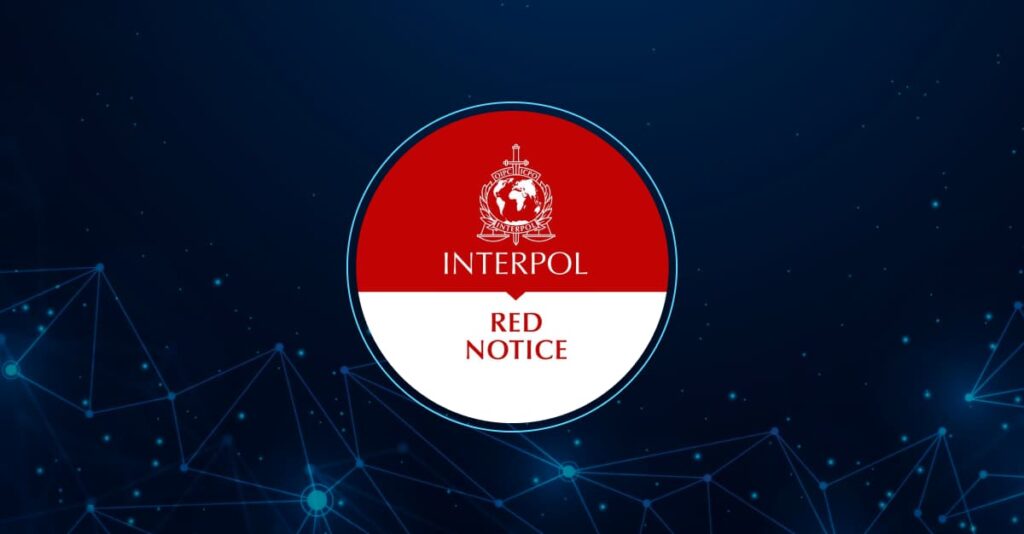Charges linked with Interpol can pose a serious threat to your rights and freedom, especially if you’re in Florida. Interpol, being an international law enforcement agency, deals with matters of justice and extradition on a global scale. Therefore, if you find yourself facing charges associated with international crimes, it’s crucial to immediately seek out a solicitor who specialises in cases related to Interpol. This expert will not only protect your rights but also ensure that all international and federal regulations applicable to your case are adhered to.
What is Interpol?
Interpol, officially known as the International Criminal Police Organization, is an intergovernmental body set up to facilitate cooperation between law enforcement agencies from different countries. Its primary aim is to maintain public order and combat international crime through coordinating the efforts of police services from its member states. The organisation operates on the basis of international treaties, and its activities are governed by a range of international legal instruments, such as the UN Charter and international agreements in criminal law.
The Risks of an Interpol Red Notice
An Interpol Red Notice is one of the most potent tools for international criminal pursuit, serving as an official alert used to inform all member countries of Interpol that an individual is sought for arrest with the intention of extradition. This notice carries significant legal risks for the person it’s issued against, as well as for the states involved in its execution. Should any issues arise, we recommend getting in touch with our solicitors to get Interpol Red Notice Defence.

Issues with legal status and legal regulation
The most significant risk is linked to the legal status of the red notice. Contrary to popular belief, a red notice isn’t an international arrest warrant. It’s essentially a request for temporary detention based on a national arrest warrant issued by a member state. However, in several countries, a red notice is treated as sufficient grounds for arrest, creating a legal grey area and potential human rights violations. Without international legal standards governing the mandatory nature of red notices, countries often face a legal conundrum, potentially leading to breaches of the rule of law.
Political motivation and abuse of the system
There’s a significant risk tied to the potential misuse of Interpol’s system for political ends. Despite Interpol’s constitution banning the use of its resources to pursue individuals for political, military, racial, or religious reasons, it’s not uncommon for this to happen in practice. Countries might employ a red notice as a means to go after political adversaries or critics of the regime. This can lead to unlawful detentions and extraditions of individuals to countries where they face unfair trials and breaches of their fundamental rights. In such scenarios, it’s crucial to consider the option of appealing to the Commission for the Control of Interpol’s Files (CCF) to challenge the validity of a red notice.
Restrictions on movement and access to rights.
A Red Notice significantly curtails a person’s freedom of movement, the one it’s issued against. Landing on Interpol’s wanted list can lead to being nicked in any country that recognises and enforces such notices. Moreover, one might face being barred entry, visa cancellations, or even stripped of their citizenship, massively restricting their rights and opportunities. These restrictions can extend to bank accounts, property, and other assets, effectively isolating them from the international community and breaching human rights.
Threats to reputation and business activities
Having a red notice against your name can seriously tarnish both an individual’s or a company’s reputation, leading to significant financial losses. Companies associated with individuals who have been issued a red notice may face contract terminations, denial of banking services, and a tarnished business reputation. The individual could also encounter difficulties when seeking employment, obtaining loans, and making deals, as the red notice becomes accessible to financial institutions and potential partners.
Legal consequences of extradition
An Interpol Red Notice often heralds the possibility of extradition, which in itself carries a host of legal risks. Extradition could breach the principle of non-refoulement, which prohibits sending individuals to countries where they face the risk of torture, cruel treatment, or an unfair trial. When extradition is based on a Red Notice, there’s a risk that the individual might be subjected to an unjust judicial process that doesn’t meet international justice standards. This is particularly concerning when the extradition request comes from countries with a poor human rights record.
Dispute procedures and legal protection
Given the grave consequences of a Red Notice, it’s absolutely critical to ensure proper legal protection for individuals against whom it’s issued. This includes both national and international protective mechanisms. A key element of this legal defence involves appealing to the Interpol’s Commission for the Control of Files (CCF), which can consider requests to delete a Red Notice if it’s been improperly used.
What Can Lead to Interpol Charges?
Charges linked with Interpol can arise under a variety of circumstances, including accusations of terrorism, human trafficking, cybercrime, financial crimes, and human rights violations. Countries, by utilising Interpol’s mechanisms, can initiate the search for individuals suspected of being involved in these crimes. In some instances, a “red notice” might be issued based on politically motivated charges, leading to the misuse of the Interpol system and infringement of the accused’s rights. It’s crucial to note that in such cases, a solicitor must consider the potential for system abuse and provide defence on an international scale.
Steps to Take If You Are Facing Interpol Charges in Florida
If you find yourself up against Interpol charges in Florida, there’s a whole set of steps you’d be wise to take to protect your rights. Top of the list, and absolutely crucial, is getting straight onto a solicitor who’s clued up on international law. At this point, it’s also key to look into the legal routes for challenging a red notice and extradition, which might involve reaching out to Interpol’s Commission for the Control of Files to get the notice binned. Your solicitor can also work on easing any conditions of detention and make sure your rights are looked after every step of the way.
How to Choose the Right Lawyer for Interpol Matters?
Choosing the right solicitor for matters related to Interpol is a critically important decision. When selecting a solicitor, it’s essential to consider their experience in international cases, understanding of the legal nuances of interacting with Interpol, and their ability to defend your rights in the event of extradition. It’s crucial to opt for a solicitor who possesses a profound knowledge of international law and can challenge charges on the international stage. Additionally, pay attention to their experience in handling cases with politically motivated charges and their capability to provide comprehensive protection of your rights.
Looking for International Solicitors?
Finding an international solicitor can be a right challenge, especially when it comes to matters involving Interpol. We recommend getting in touch with our qualified solicitors at our law firm specialising in Interpol red notice cases. They offer services to protect your rights in international matters, including defending against extradition and challenging red notices. Our solicitors have unique knowledge and experience working with international organisations, including the UN, the International Criminal Court, and the European Court of Human Rights.
